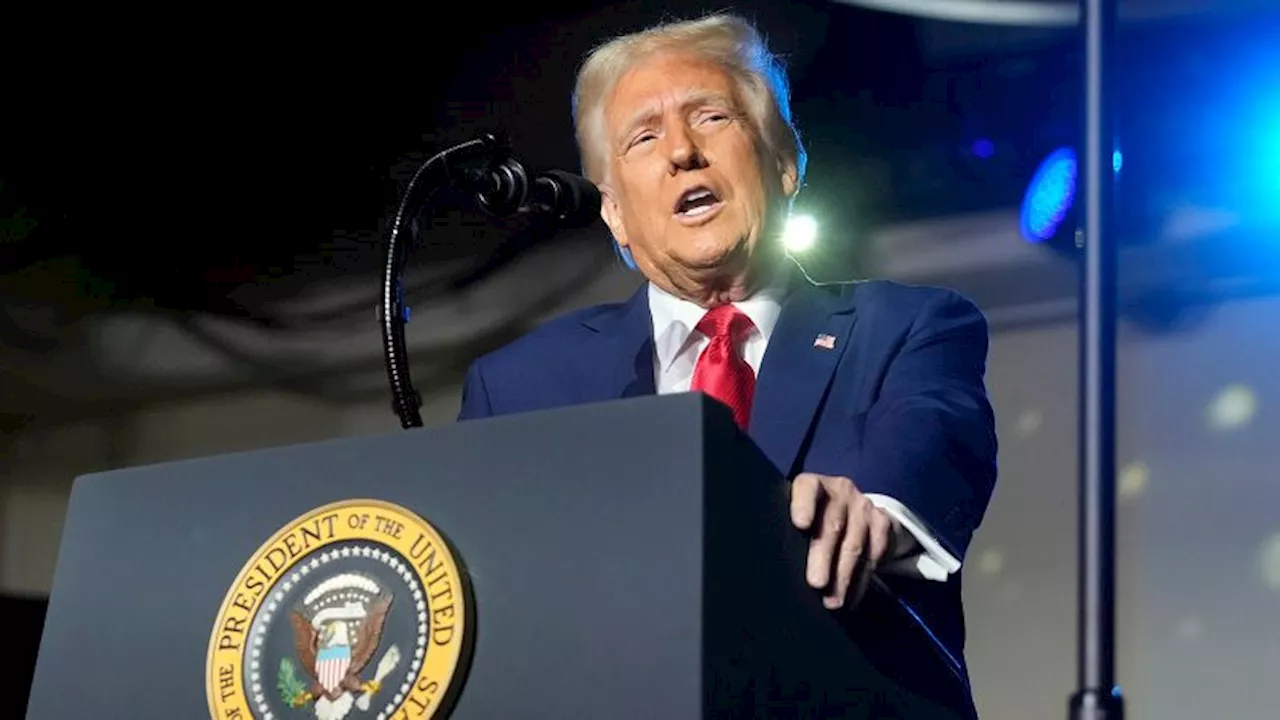Donald Trump celebrated an early victory for his hardline foreign policy after Colombia agreed to resume accepting migrant repatriation flights from the US. The president had threatened hefty tariffs on the US ally, marking his most assertive attempt to assert dominance in the Western Hemisphere and intimidate other nations into complying with his demands.
Donald Trump celebrated an early victory for a coercive foreign policy based on tariffs and hard power on Sunday after Colombia agreed to resume accepting migrant repatriation flights. The president had threatened significant tariffs on the US ally, marking his most assertive attempt yet to make an example of a nation that crossed him and assert dominance in the Western Hemisphere.
The crisis began when Colombian President Gustavo Petro blocked US military flights carrying undocumented migrants from landing, disrupting a mass deportation operation intended to fulfill one of Trump's most prominent campaign promises. Trump seized the opportunity to demonstrate strength to his supporters and warn other countries in Latin America about the consequences of resisting migrant repatriations. After hours of tension with Bogota, the White House announced that Colombia had agreed to accept migrant flights, including military aircraft, and that tariffs would be suspended pending the implementation of the agreement. 'Today's events make clear to the world that America is respected again,' White House press secretary Karoline Leavitt stated in a Sunday evening press release. 'President Trump will continue to fiercely protect our nation's sovereignty, and he expects all other nations of the world to fully cooperate in accepting the deportation of their citizens illegally present in the United States.' Colombia's foreign minister quickly confirmed the resumption of US deportation flights. Petro's concession represents a surrender to US power and Trump's aggressive personal style. It also likely empowers administration officials who perceive tariff threats not merely as a traditional tool in trade disputes but as a weapon to intimidate other nations, including long-standing US allies, across a broader spectrum of issues. However, the dispute with Colombia also served as a reminder of the potential global disruption caused by Trump's hardline approach. The US president has already pressured Canada and Mexico on border issues, attempted to coerce Denmark into selling Greenland, and threatened to reclaim the Panama Canal. Four years of such tactics may damage US global relationships and foster negative sentiments towards Americans abroad. The Colombia dispute caught the attention of China, which aims to increase its influence in Washington's backyard, highlighting the potential drawbacks for the United States if Trump persists in confrontational tactics that alienate key regional partners. Trump's victory over Colombia concluded the first week of his presidency, a period marked by intimidation as a tool to assert his authority within the United States and dramatically alter the nation's trajectory abroad. On Sunday, Trump's new administration launched a deportation campaign in Chicago that will expand nationwide, further demonstrating his desire for swift results. White House border czar Tom Homan told CNN's Priscilla Alvarez Sunday that the new multi-agency approach to immigration enforcement was a 'game-changer.' 'Today's operation was all of government. President Trump has put all of government on this issue,' he stated. Nearly 1,000 people were arrested during the operation, according to Immigration and Customs Enforcement. This followed another instance of the new president wielding aggressive executive power after he dismissed over a dozen watchdog officials from key government agencies on Friday night. This purge aligns with Trump's efforts to restructure the federal government according to a long-held conservative belief that the federal bureaucracy consistently hinders Republican presidents from implementing their electoral mandates. However, since agency inspectors general report waste, fraud, and abuse to Congress, the move is being criticized by Democrats as an abuse of power and a sign of Trump's disregard for government ethics. Even some prominent Republicans expressed concern that the president should have adhered to the law by providing Congress with 30 days' notice of the dismissals. 'I think he should have done that,' Sen. Lindsey Graham stated on CNN's 'State of the Union' on Sunday. However, the South Carolina Republican added: 'Is it OK for him to put people in place that he thinks can carry out his agenda? Yes. He won the election. What do you expect him to do, just leave everybody in place in Washington before he got elected?' Graham further stated: 'He feels like the government hasn’t worked very well for the American people.' Another intense week lies ahead for Trump. He has hinted at being a transformative leader, displaying energy and focus while acting swiftly to implement his campaign promises, particularly on immigration. His agent of disruption within the Pentagon, Pete Hegseth, was sworn in as defense secretary on Saturday after Vice President JD Vance cast the deciding Senate vote on his controversial confirmation.
Donald Trump Colombia Tariffs Migrant Repatriation Foreign Policy Hard Power
United States Latest News, United States Headlines
Similar News:You can also read news stories similar to this one that we have collected from other news sources.
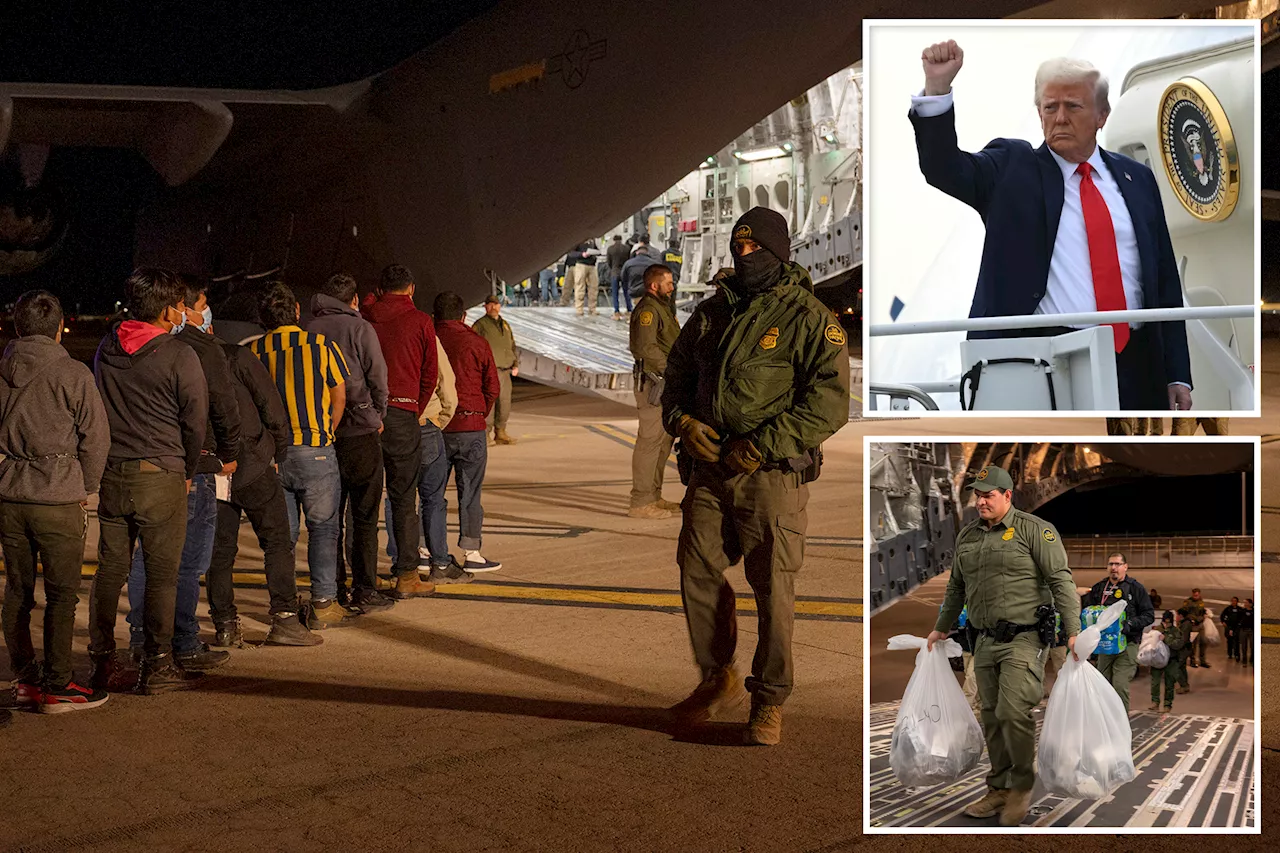 Trump announces immediate retaliation against Colombia after socialist president turns back US deportation flightsTrump announces retaliatory measures against Colombia for refusing US military flights carrying deported migrants
Trump announces immediate retaliation against Colombia after socialist president turns back US deportation flightsTrump announces retaliatory measures against Colombia for refusing US military flights carrying deported migrants
Read more »
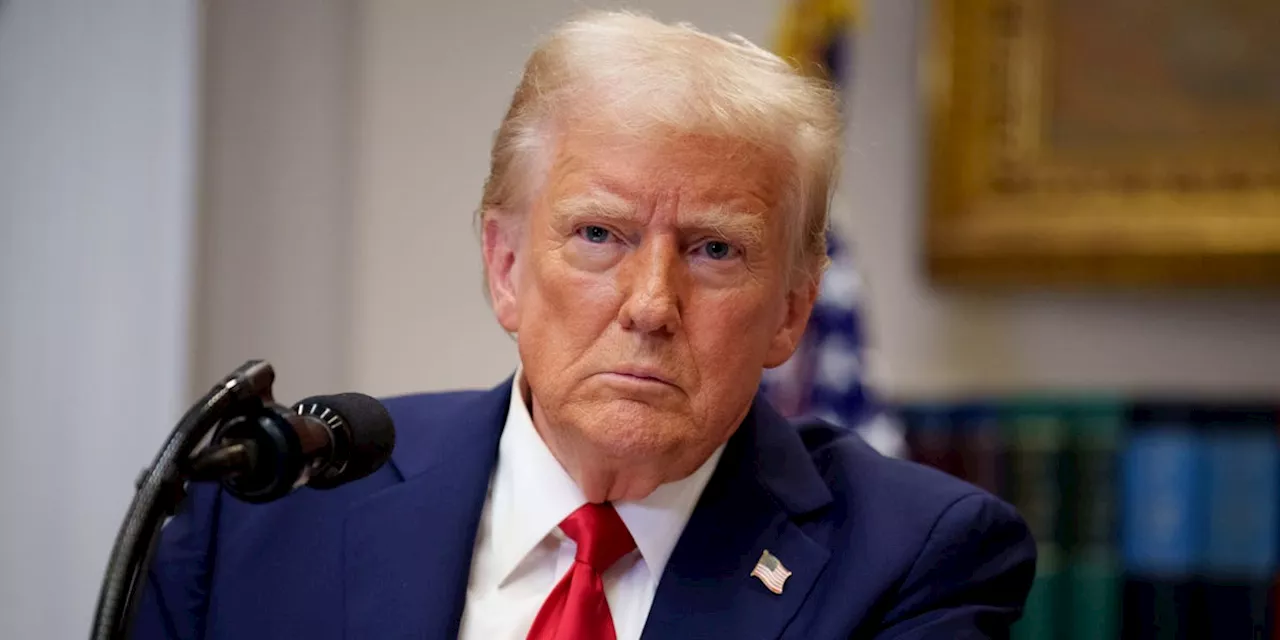 Trump: US to impose '25% tariffs' on Colombia after migrants rejectedBusiness Insider tells the global tech, finance, stock market, media, economy, lifestyle, real estate, AI and innovative stories you want to know.
Trump: US to impose '25% tariffs' on Colombia after migrants rejectedBusiness Insider tells the global tech, finance, stock market, media, economy, lifestyle, real estate, AI and innovative stories you want to know.
Read more »
 Trump orders tariffs after Colombia rejects US flights of deported migrantsTrump said the measures were necessary, because the decision of Colombian President Gustavo Petro “jeopardized” national security in the U.S.
Trump orders tariffs after Colombia rejects US flights of deported migrantsTrump said the measures were necessary, because the decision of Colombian President Gustavo Petro “jeopardized” national security in the U.S.
Read more »
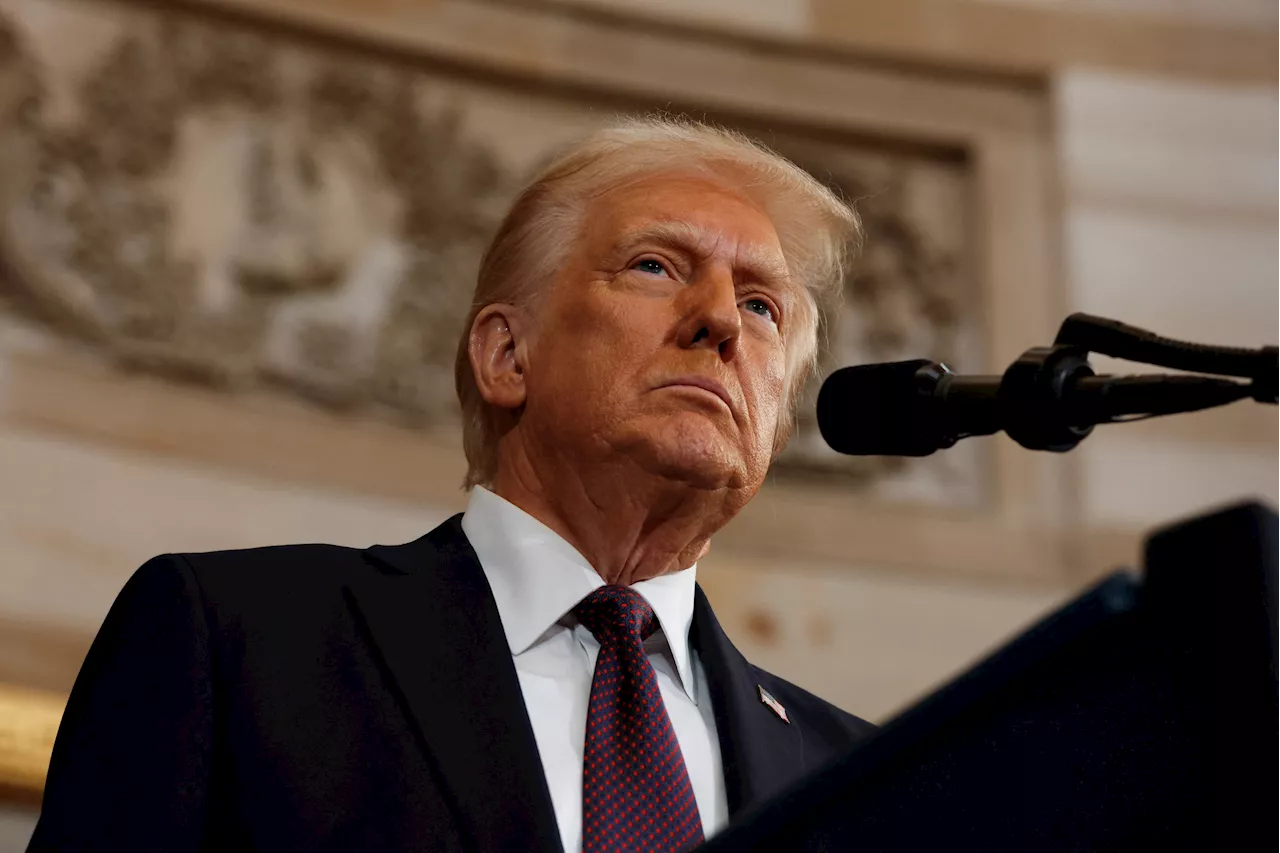 MAGA Reacts to Migrants Returning to Colombia After Trump Ordered Tariffs'We are unwavering in our commitment to end illegal immigration,' U.S. Secretary of State Marco Rubio said on Sunday.
MAGA Reacts to Migrants Returning to Colombia After Trump Ordered Tariffs'We are unwavering in our commitment to end illegal immigration,' U.S. Secretary of State Marco Rubio said on Sunday.
Read more »
 Colombia's Petro Backs Down, Sends Plane to Pick Up Migrants After Trump Threatens SanctionsSecretary of State Marco Rubio stated that President Donald Trump made it clear that the United States will not tolerate lies or exploitation. Trump threatened Colombia with sanctions, including tariffs and travel bans, if they didn't accept the return of deported migrants. Colombia's President Gustavo Petro initially authorized flights but then refused to accept two planes carrying 160 migrants. After Trump's intervention, Petro reversed his decision and agreed to send a presidential plane to pick up the migrants.
Colombia's Petro Backs Down, Sends Plane to Pick Up Migrants After Trump Threatens SanctionsSecretary of State Marco Rubio stated that President Donald Trump made it clear that the United States will not tolerate lies or exploitation. Trump threatened Colombia with sanctions, including tariffs and travel bans, if they didn't accept the return of deported migrants. Colombia's President Gustavo Petro initially authorized flights but then refused to accept two planes carrying 160 migrants. After Trump's intervention, Petro reversed his decision and agreed to send a presidential plane to pick up the migrants.
Read more »
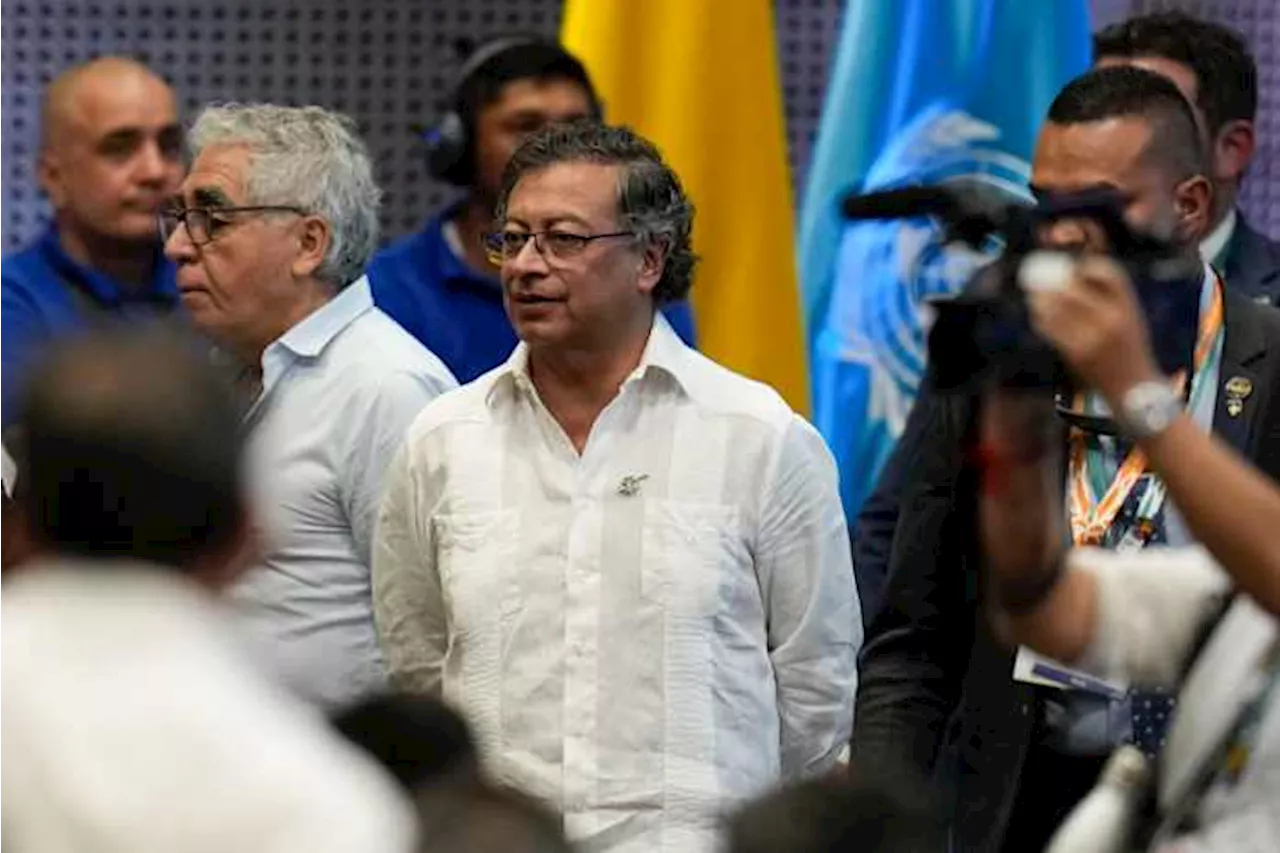 White House says Colombia agrees to take deported migrants after Trump tariff showdownThe White House is claiming victory in a showdown with Colombia over accepting flights of deported migrants from the U.S., hours after President Donald Trump threatened steep tariffs on imports and other sanctions on the longtime U.S. partner.
White House says Colombia agrees to take deported migrants after Trump tariff showdownThe White House is claiming victory in a showdown with Colombia over accepting flights of deported migrants from the U.S., hours after President Donald Trump threatened steep tariffs on imports and other sanctions on the longtime U.S. partner.
Read more »
